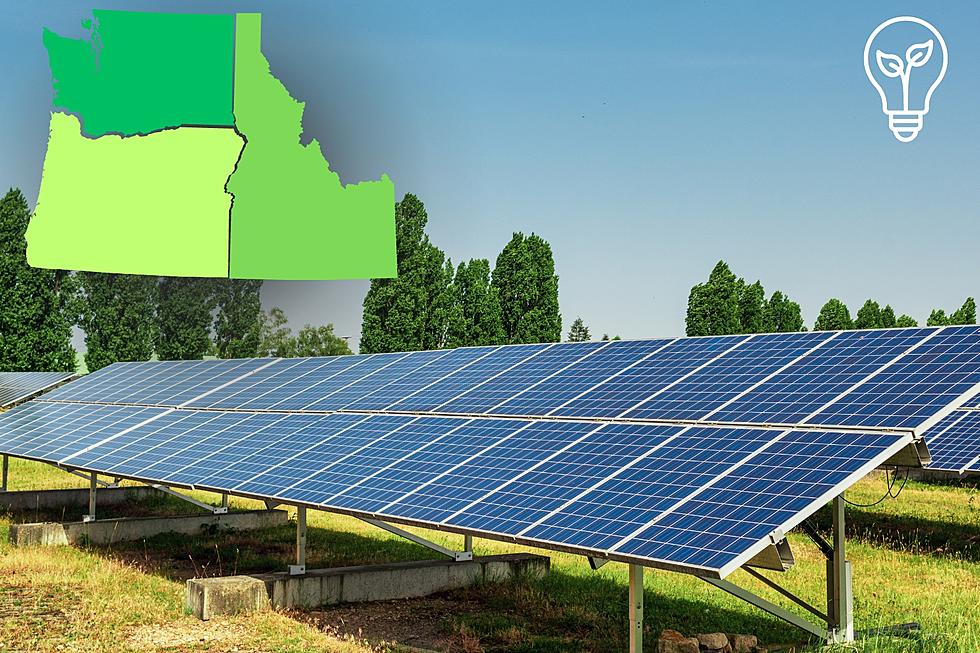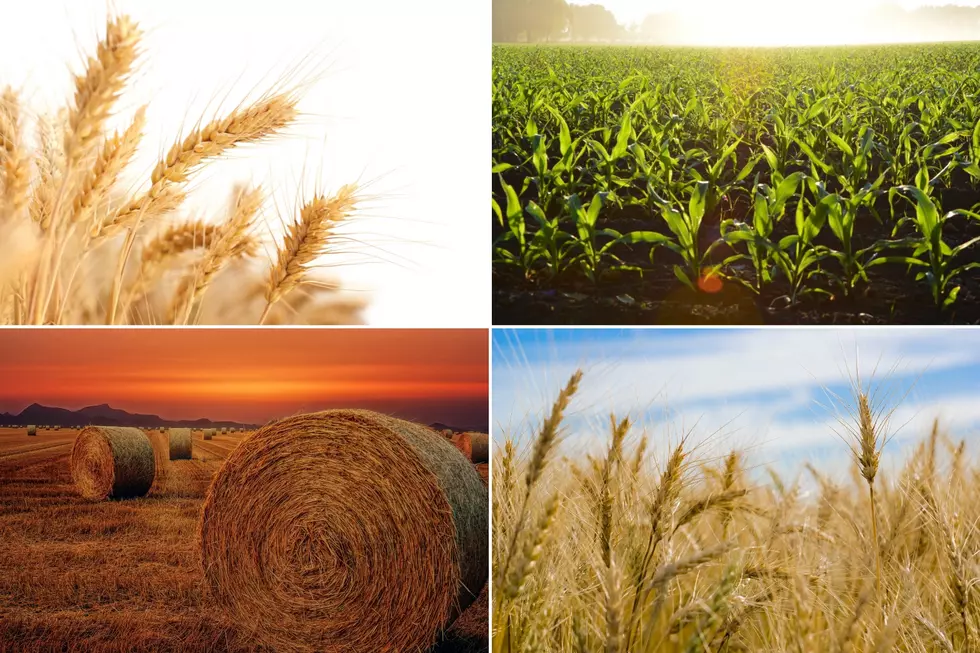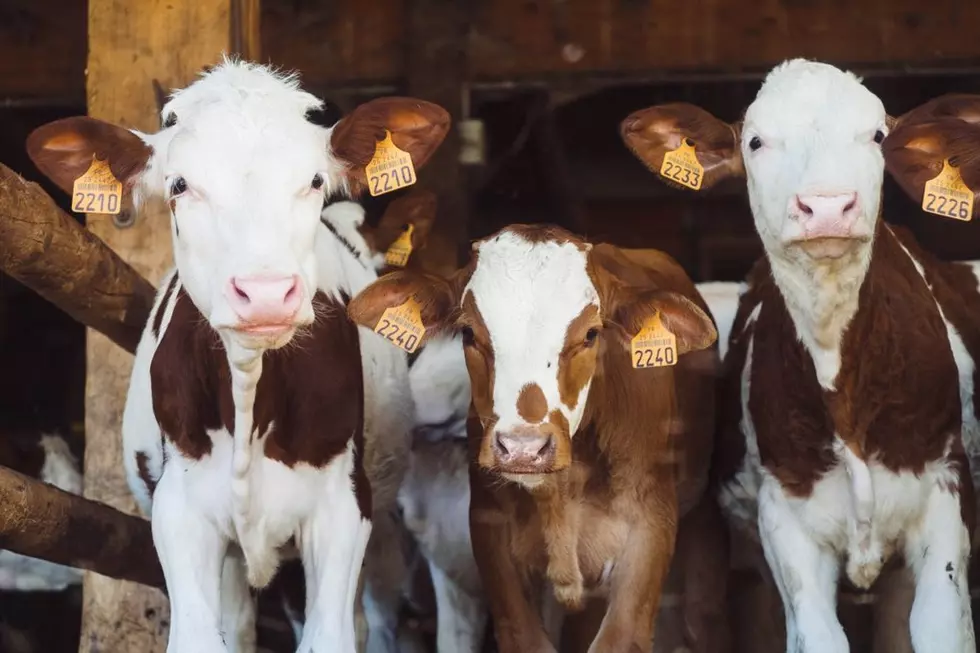
USDA Invests $2.6M in PNW Businesses To Offer Clean Energy
The United States Department of Agriculture (USDA) has announced several investments in Pacific Northwest businesses for clean energy, as part of President Biden’s "Investing in America" policies. $2,609,135 was invested across businesses in Washington, Idaho, and Oregon.
The announcement of the investment was made at the 105th annual American Farm Bureau Federation convention in Salt Lake City, Utah. It is part of a $157 million investment being made nationwide for the Rural Energy for America Program (REAP). REAP "provides grants and loans to help ag producers and rural small business owners expand their use of wind, solar and other forms of clean energy and make energy efficiency improvements."
Over $700,000 invested in Washington state local businesses
A total of $744,365 has been invested in renewable energy projects in Washington, divided among seven different businesses. The businesses include a wheat farm, an organic grower, a freight hauling business, and more.
In a press release, Helen Price Johnson, State Director for USDA Rural Development in Washington State, stated:
The Biden-Harris administration is wisely investing in the rural people of Washington state because they put their ingenuity and hard work into strengthening our rural communities. Powering small rural businesses with modern, renewable energy infrastructure creates good-paying jobs and supports opportunities for people, driving economic prosperity and security, which is good news for both the economy and the environment.
The seven Washington businesses awarded grants are:
Western Wahkiakum County Telephone Company will receive a $214,926 grant to purchase and install a 102 kilowatt (kW) solar array, saving $8,627.23 per year in savings and replacing or generating 114,100 kilowatt hours (kWh) (97.30 percent energy savings) per year which is enough to power 10.65 homes.
AACC-BAC LLC, an auction house in rural Franklin County, will receive a $78,120 grant to purchase and install a 50.4 kilowatt (kW) solar array. This project will save the company $4,361 annually and replace 66,310 kilowatt hours (kWh) (98 percent energy savings) per year which is enough to power six homes.
Lopez Garage LLC, an existing business on Lopez Island in rural San Juan County, will receive a $37,753 grant to purchase and install a 36,562 kilowatt (kW) solar system, saving $3,121.87 annually and replacing 65,722.9 kilowatt hours (kWh) (44 percent energy savings) per year.
Tanke Joint Venture, a wheat farm in rural Lincoln County, will receive a $23,650 grant to purchase and install a 15.3 kilowatt (kW) solar array. This project will save the business $1,429 per year and replace or generate 20,419 kilowatt hours (kWh) per year which is enough to power three homes.
Lil' Scoop Bobcat Inc., a freight hauling business based out of Bellingham in rural Whatcom County, will receive a $21,757 grant to purchase and install a 14.04 kilowatt (kW) solar array. This project will realize $1,285.91 per year in savings and will replace or generate 11,340 kilowatt hours (kWh) (93 percent energy savings) per year which is enough to power 1.06 homes.
Spring Time Farm LLC, will receive a $27,509 grant to purchase and install a 19.44 kilowatt hour (kWh) solar array. Spring Time Farm, a Certified Organic vegetables and flowers farm in Everson, Whatcom County, will realize $2,207 per year in savings and will replace 19,449 kilowatt hours (kWh) (107 percent energy savings) per year which is enough to power two homes.
J&J Golf LLC, an existing business that runs Wine Valley Golf Club in Walla Walla County, will receive a $340,650 grant to purchase and install a 329-kWh solar array. This project will realize $22,990 per year in savings and will replace 371,714 kilowatt hours (kWh) (89 percent energy savings) per year which is enough to power 31 homes.
Idaho receives over $1.7 million in funding:
In Idaho, four recipients were announced, with a total of $1,756,886 invested.
Kelsch Farms LLC, a family owned farming operation in Idaho Falls. This Rural Development investment will be used to purchase and install a 46 kilowatt (kW) solar electric system. This project is expected to save $6,488 per year. It will replace 64,888 kilowatt (kWh) (103 percent of their energy use) which is enough electricity to power six homes.
Lance & Lisa Funk Partnership dba Lance Funk Farms, a family-owned farming operation located in American Falls. This Rural Development investment will be used to purchase and install a 1000 kilowatt (kW) solar electric system. This project is expected to save $214,375 per year. It will replace 2,818,830 kWh (101 percent of their energy use) which is enough electricity to power 268 homes.
County Line Farms, a family-owned farming operation located in American Falls. This Rural Development investment will be used to purchase and install an 800 kilowatt solar electric system. This project is expected to save $230,748 per year. It will replace 2,394,040 kilowatt hours (kWh) (73 percent of their energy use) which is enough electricity to power 73 homes.
MVP LLC, a family-owned farming operation located in Kimberly. This Rural Development investment will be used to purchase and install a 165 kilowatt (kW) Solar Electric System. This project is expected to save $23,675 per year. It will replace 236,754 kilowatt hours (kWh) (97 percent of their energy use) which is enough electricity to power 22 homes.
Oregon receives over $107,000 in funding:
Only one Oregon business was rewarded funds in this latest REAP announcement, totaling $107,884.
Rusted Gate Farm, a small farm in rural Central Point, Oregon. This Rural Development investment will be used to purchase and install an 85 kilowatt (kW) roof-mounted solar photovoltaic system on top of a building. The system will generate 111,702 kilowatt hours (kWh) of renewable electricity per year, which is enough to power six typical U.S. homes. It will reduce its utility bill by $10,053 per year.
REAP applications are open for interested producers and businesses in the rural Pacific Northwest.
Washington's Top 10 Commodities
Gallery Credit: Danielle Kootman
Oregon's Top 10 Commodities
Gallery Credit: Jaime Skelton
LOOK: Counties with the most farmland in Idaho
Gallery Credit: Stacker
More From PNW Ag Network









